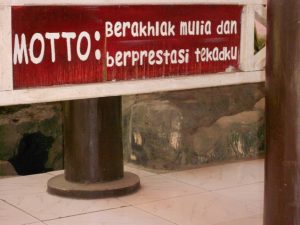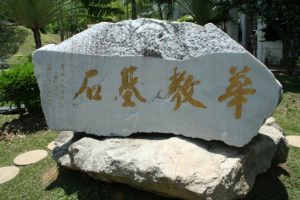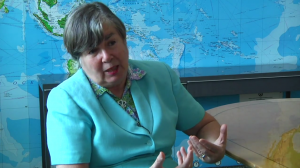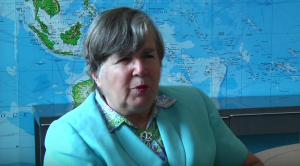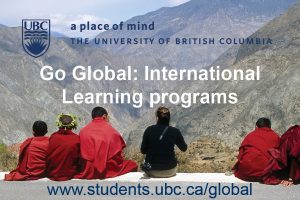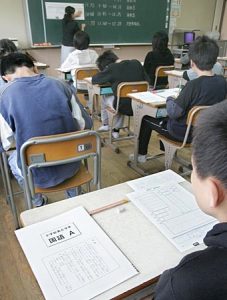The Indonesian Education Dilemma: High Test Scores or Genuine Learning?
Memo # 175 – Indonesian students perform consistently poorly in international surveys. In the 2009 Programme for International Student Assessment (PISA) survey,1 more than half of 15-year-old students were found to be lacking sufficient skills in reading literacy to enable them to participate actively and effectively in society, to be functionally literate. The background to this dire situation is complex. But the examination system may be an important contributing factor.
Mobilizing the Chinese Education Movement in Malaysia
Memo #174 – The Chinese education movement in Malaysia fought for the survival of Chinese vernacular schools within the Malay-dominated education system since 1951. Today it is one of the most influential political entities among Chinese-speaking Malaysians. It is playing a critical role in influencing votes to support a movement-friendly political alliance in the next general election.
Japan and South Korea’s History Divide
Memo #165 – Despite the United States’ shift in strategic attention to the Asia Pacific, fiscal constraints and defence spending cuts highlight the need for greater military cooperation among Asian partner countries. There are myriad security issues in the region. Japan and South Korea, the two key US allies in Asia, are significant actors in this context. But enhanced defence cooperation continues to be hampered by controversies regarding Japan’s history of aggression on the Korean peninsula. In mid-May, Seoul cancelled the planned signing of two military accords with Tokyo, citing domestic criticism on any military pact amid unresolved bilateral history issues.
Canada-China Education Projects (Video Interview with Dr. Ruth Hayhoe) (Part 2/2)
Memo #162 – In part two of our interview Dr. Hayhoe provides insight on how the next generation can learn from previous Canada-China education projects. She discusses what Canadians can gain from the Confucian tradition of education, analyzes Hong Kong’s education system in response to influences from mainland China, and shares her goals for the project.
Canada-China Education Projects (Video Interview with Dr. Ruth Hayhoe) (Part 1/2)
Memo #159 (Video) – In this interview, based on a lecture at The University of British Columbia in May 2012, Dr. Hayhoe reflects on the arc of previous Canada-China education projects, Canada’s legacy, and mutual learning and lessons for each state partner
Drivers’ Education in Japan: Personality Tests and ‘Road Rage?’
Memo #158 – There is no Japanese equivalent for the term “road rage.” Yet Japanese psychologists and the public are aware of the emotional dimensions of driving. A 2001 article in the Japan Automobile Association’s monthly magazine discusses the propensity of some for angry driving (ka ka unten). Since 1996, Japanese automobile insurance rates have been adjusted to penalize drivers who cause accidents. But such neoliberal forms of governance have not replaced forms of moral suasion and self-reflection that have a long history in Japan.
Taiwan’s Liberal Values may Corrode China’s Authoritarian System
Memo #153 – Hong Kong was returned to the People’s Republic of China (PRC) on July 1, 1997. The island maintained rule of law and civil liberties. Socially, economically, and politically, there has been some degree of convergence under the “one country, two systems” system. Hong Kong has become more open to mainland tourists and students, and in the process taught them the importance of liberal values, such as freedom of speech, protest, and assembly. On the other hand, mainland China has converged with Hong Kong as its economy and society have become far more open than ever before.
Regulating International Student Mobility – Agents and Markets in New Zealand
Memo #151 – International student mobility is a huge industry. 3.3 million students studied outside of their country of citizenship in 2008. In some countries like Australia and New Zealand, international students represent about 15 per cent of total post-secondary enrolments. Student mobility is often conceived as a straightforward exercise in demand and supply. Students willing to pay the costs of overseas study represent the demand. Educational services provided by post-secondary institutions – many facing reduced state funding – represent the supply. This free market model ignores the multitude of mediating actors involved in student mobility.
National Testing in Japan and Australia: To Publish or Not to Publish Scores?
Memo #149 – On this April 17, 2012, in Japan, around 30 per cent of years 6 and 9 students have undergone national standardized testing. But Japan isn’t the only country to introduce tests as part of policy efforts to improve student performance. In fact, all advanced countries use tests to assess potential workforce knowledge and skills with an eye towards raising national productivity and surviving global competition. But the exact nature of testing regimes differs per country. For example, Japan and Australia use different mechanisms to direct individual schools towards national goals.
同化と差異化が同時進行する世界の教育政策: 学力テストの日豪比較から
Memo #149 – 今日、全国の小学校と中学校の約30%を対象に全国学力・学習状況調査(以下「学テ」)が実施された。もちろん、こうした全国的な学力テストを導入して学力の向上を図る教育政策は、日本に限ったことではない。グローバル化した「知識経済」において、国の経済的生産性を高め国際的な競争に生き残るには、労働者の知識・技能レベルの底上げが不可欠であり、そのためには全国学力テストを通じて教育の質を向上する必要がある、というのが先進国に共通する政策的見立てである。
